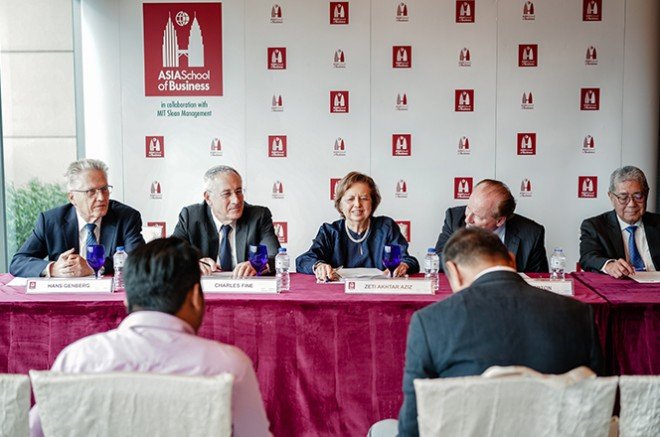The growing mandate of central banks
The complexity of the world has changed the role of central banks. In many countries, central bank mandates have evolved from simply keeping prices stable and limiting inflation – to far-reaching dictates, such as economic growth, job creation, and even influencing climate change.
“As the role of the central bank has grown in importance, central banking practitioners need to quickly and effectively assimilate best practices and current thinking to deliver the best possible policies and outcomes,” said Dr. Zeti Akhtar Aziz, former governor for Bank Negara Malaysia (BNM) and current Group Chairman of Permodalan Nasional Berhad.
Transforming central banking education
Historically, central banking education combined on-the-job training and short courses with a solid university (and possibly post-graduate) education. For employees, courses were delivered internally by central banks or through partnerships with academic institutions on central banking-related topics. Learning on the job and through disparate modules meant it took years to accumulate the requisite knowledge to develop a command of the issues facing central banks.
Furthermore, the needed knowledge has been constantly evolving, seemingly at an increasing rate. To provide an accelerated option to bring central bankers to the frontier, Asia School of Business (ASB), in collaboration with MIT Sloan School of Management, is launching in June 2021, a one-year, intensive Master of Central Banking program.
“The design of our curriculum is integrative,” said Prof Eli Remolona, Director of Central Banking at ASB. Subjects are woven together to give a holistic view, from the latest techniques in data analysis to emerging issues, such as digital currencies.” “This program will equip leaders to create impact, faster,” added Prof Remolona, who spent over three decades in central banking including at the Fed and the BIS, after completing his PhD at Stanford.
A dedicated knowledge hub for central banking
ASB has also established the Central Banking Research Center to serve as a research and knowledge hub for central banks globally. “Because ASB is located strategically in Malaysia, with proximity to some of the world’s fastest-growing economies, we have ready access to research opportunities and case studies relevant to Asia and the emerging economies,” said Prof Charles Fine, CEO, President, and Dean of ASB.
Underscoring the relevance of Asia to the world, Prof Hans Genberg, Senior Director of Central Banking and Finance Programs at ASB, who has been a university professor as well as having served in leadership roles at the IMF, SEACEN, and the HKMA, said: “It’s crucial for the world to understand Asia, its nuances, and challenges. In my 30 years as an academic in central banking and economics, these topics were always focused on advanced countries.
During my time in Hong Kong, I became convinced that we need to teach the developed and developing world how to consider the needs of emerging markets when formulating policies.” ASB’s Prof. Anella Munro, an MIT graduate who spent nearly two decades at the Reserve Bank of New Zealand after completing her PhD at Oxford, asserted, “The curriculum we’ve designed really addresses the training needs of central banks, a lot of which is not covered in mainstream economics and finance programs.”
Prof. Triwit Ariyathugun, added, “After finishing my PhD at Chicago, I thought I would have to pick between academia and policy. The opportunity to join ASB, with its MIT affiliation, gave me the best of both worlds.”
Building a global network of central bankers
The immersive 12-month master’s program includes six weeks of courses at MIT, and is designed as a residential program so students can build a strong international network with junior. and senior central bankers lasting beyond the program.
In addition, each MCB participant will be part of a team that makes an extended visit to one of several participating APAC-region central banks, working on an “action learning” project to deepen the immersive exposure to policy issues and policy makers in the region.
“It’s essential that central banks not only understand and communicate within the borders but coordinate and work with central banks elsewhere,” emphasized Robert C. Merton, Professor of Finance at MIT, Nobel Prize Winner in Economics, and co-chair of the Advisory Council for the Master of Central Banking. The Council includes nine former governors from across four continents
For the founding class comprised of students from over a dozen countries, the network they are about to build in this first-of-its-kind program might define not only their individual trajectories, but the future of central banking in the region and beyond.
Read the full article here.
This article was originally published on South China Morning Post.





